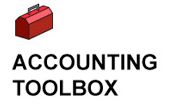Defining ethics—in this case, accounting ethics—rests upon two elements:
- a clear understanding of a moral code under which one does business
- the ability to apply this moral code to varying professional circumstances
Accountants should strive to be ethical in their professional practice. Some accounting positions may require additional ethical considerations.
- The auditor is responsible for ensuring to the board of directors, the stockholders, and an external financing organization that the organization's fiscal actions are done according to generally accepted accounting standards.
- The CFO is responsible for ensuring that their actions, and their corporation's actions, in respect to their sphere of influence, are ethically executed. If questionable issues arise, they are to follow their professional responsibilities as proscribed by law and professional guidance.
Business ethics, or the failure of ethics, has far-reaching impacts. As you research "ethics" and accounting or corporate governance, you may find sites on which you must evaluate the quality of the information and the website itself.
The following sites provide some information on business ethics and the impact of ethics on decision making.
The International Ethics Standards Board for Accountants (IESBA)
Overall, the accounting profession is held in high esteem for its impartiality and adherence to business ethics. Although not ranked as high as nursing or certain law enforcement positions, accountants are viewed by the general public as being highly ethical.
See the Gallup poll Honesty/Ethics in Professions.
Explore this link to learn about the International perspective of ethics in the accounting and auditing profession https://www.iasplus.com/en/resources/global-organisations/iesba ,
The Sarbanes-Oxley Act and PCAOB are the outgrowth of increased government oversight.
Visit the state board of accountancy for states with minutes published on the Internet to view disciplinary actions.
Public accounting firms actually include the cost of possible litigation in their pricing structure. The AICPA also publishes disciplinary actions at its website, Disciplinary Actions.
The role accountants played in these illegal business operations calls into question how accountants should react when faced with potentially questionable business decisions.
Almost all of the professional accounting societies have ethical statements and rules of conduct. The AICPA website has many ethical decision support tools for CPAs and other practicing accountants.
These include:
Ethics Products
General ethics reference tools.
Ethics Decision Tree for CPAs
A decision tree for those involved in business as well as government accounting.
Ethics and Independence
A discussion on independence.
The Institute of Internal Auditors' code of ethics
The Association of Government Accountants' code of ethics
International Ethics Standards Board for Accountants
By the International Federation of Accountants, this provides a Code of Ethics from an international perspective.
To summarize the concepts of ethics and codes of conduct visit the IMA web site and its Ethics Center to access links of interest related to our course.
There are case studies available to assist in understanding how to apply ethical principles:
Accounting Ethics (and fraud)
Discusses the Madoff cases.
UMUC has courses specifically on ethics. These include:
- ACCT 411: Ethics and Professionalism in Accounting
- BMGT 496: Business Ethics
- PHIL 315: Ethical Issues in American Business
